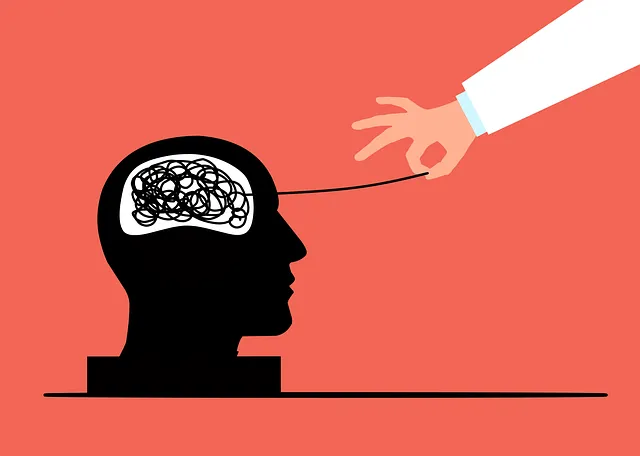The Longmont Kaiser Permanente behavioral health providers are at the forefront of combating stigma against mental health through diverse and accurate media representation. They advocate for cultural competency training, risk assessment skills, and open dialogues to reduce societal perceptions. By involving individuals with lived experiences, conducting educational programs, and collaborating with artists, they promote empathetic understanding and compassionate care. Their multi-faceted approach includes social media campaigns, community outreach, and partnerships with media outlets and organizations dedicated to Mental Health Awareness, driving meaningful change in mental health discourse.
Mental illness representation in media has long been a topic of debate, with stereotypes and inaccurate portrayals prevalent. This article explores strategies to challenge these norms and highlights successful models, such as the Longmont Kaiser Permanente behavioral health providers, who advocate for accurate mental health depictions. We discuss key approaches to promote awareness, collaborate with media and community partners, and ultimately improve how mental illness is represented in our society.
- Understanding Mental Illness Representation in Media: The Current Landscape
- Longmont Kaiser Permanente Behavioral Health Providers: A Model for Accurate Depictions
- Strategies to Challenge Stereotypes and Promote Awareness
- Implementing Change: Collaborating with Media and Community Partners
Understanding Mental Illness Representation in Media: The Current Landscape

The media plays a significant role in shaping societal perceptions about mental illness, often influencing how individuals with behavioral health challenges are viewed and treated. Currently, representation of mental illness in media is mixed, ranging from stigmatizing stereotypes to more nuanced portrayals. Longmont Kaiser Permanente behavioral health providers acknowledge this challenge and strive for accurate, empathetic, and diverse depictions in their content creation and partnerships.
Understanding the impact of media portrayal, these healthcare providers emphasize the importance of cultural competency training for mental health professionals to better address a wide range of patient needs. This includes equipping practitioners with skills to conduct risk assessments for individuals experiencing complex trauma or other high-risk situations. Moreover, by actively engaging in conversations about mental illness and promoting access to trauma support services, media platforms and creators can contribute to reducing stigma and improving care outcomes.
Longmont Kaiser Permanente Behavioral Health Providers: A Model for Accurate Depictions

The Longmont Kaiser Permanente behavioral health providers offer a commendable model for accurate mental illness representation in media and popular culture. By prioritizing authentic and nuanced portrayals, they contribute significantly to the challenge of solving the societal issue of stigmatization associated with mental health conditions. These healthcare providers understand that media influence shapes public perceptions, so they actively work to dispel myths and stereotypes through their innovative practices.
Their commitment to Burnout Prevention Strategies for Healthcare Providers has been instrumental in fostering positive thinking about mental illness. By integrating stigma reduction efforts into their clinical approach, Longmont Kaiser Permanente ensures that patients with various mental health disorders receive empathetic care. This model can serve as a blueprint for other healthcare institutions striving to represent mental illness more accurately and promote understanding in the broader community.
Strategies to Challenge Stereotypes and Promote Awareness

To challenge stereotypes and promote mental health awareness, Longmont Kaiser Permanente behavioral health providers employ a multi-faceted approach. They actively involve individuals with lived experiences to share their stories, which humanizes mental illness and combats misconceptions prevalent in media. By fostering open dialogues, these providers encourage communities to embrace empathy and understanding. Additionally, they facilitate educational programs that target both general public and specific demographics, aiming to destigmatize mental health concerns.
Through collaborative efforts, Longmont Kaiser Permanente behavioral health providers also engage in advocacy and policy changes, advocating for more inclusive representations of mental illness in media. They collaborate with artists, filmmakers, and content creators to showcase the diversity of experiences and promote positive narratives that emphasize inner strength development. These stigma reduction efforts extend to social media campaigns and community outreach programs, ensuring that Mental Health Awareness becomes a year-round conversation rather than limited to designated months.
Implementing Change: Collaborating with Media and Community Partners

To effectively challenge the portrayal of mental illness in media, a collaborative approach is essential. Longmont Kaiser Permanente behavioral health providers can play a pivotal role by partnering with media outlets and community organizations dedicated to Mental Health Awareness. These collaborations can facilitate more accurate and sensitive representations of mental illness, fostering understanding and reducing stigma. By engaging in open dialogues, providing expert insights, and offering training on ethical storytelling, healthcare professionals can empower media creators to craft narratives that reflect the complexities of mental health struggles.
Such partnerships extend beyond media; they encompass community events, educational programs, and advocacy campaigns aimed at Depression Prevention and Mental Illness Stigma Reduction Efforts. Together, these entities can dispel myths, promote early intervention, and encourage supportive environments for individuals facing mental health challenges. Through collective action, Longmont Kaiser Permanente behavioral health providers and their allies can drive meaningful change, ensuring media becomes a force for positive mental health discourse rather than perpetuating harmful stereotypes.
Mental illness representation in media has long been a topic of debate, but with initiatives like those employed by Longmont Kaiser Permanente’s behavioral health providers, we can challenge harmful stereotypes and promote awareness. By collaborating with media outlets and community partners, we can foster more accurate and empathetic portrayals on screen and in our daily conversations. These efforts are crucial steps towards creating a more inclusive and supportive society for individuals living with mental health conditions.






